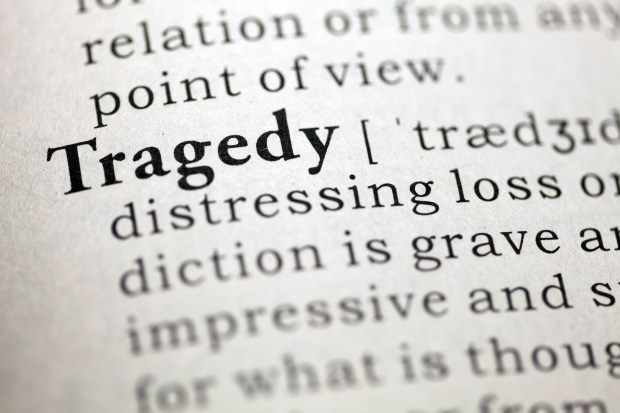This is my 8th in a series of 10 columns in 2017 on the importance and proper use of words, and how language influences how I lead this youth company.
“Words mean things.” I often heard that phrase by a radio personality during my college years (even as I trained for my own hopeful radio career). Similar to my preference for a neat hairstyle and weighing myself to the tenth of a pound every morning, I prefer to be precise rather than sloppy (as I put it) with word use. Along with several other word-use topics this year, one of my personal soapboxes involves the over-use of the word “tragedy.”
When I think of a tragedy, I think of something that happens to someone, such as a natural disaster, accidental (or disease-caused) death of a loved one, or a shattered dream, just to name a few. In the strongest terms, however, I do NOT call it a “tragedy” when someone is murdered, assaulted, abused, or otherwise the victim of a fellow human’s act of evil, whether on an individual or mass scale. Human acts of evil done to others are atrocities, not tragedies. (They may be both, but Justice demands word accuracy, and “atrocity” is not too strong a word for an intentional act of evil.)
Don’t get me wrong. I believe that within every human heart lies the capacity for atrocities. Even hating someone is considered like murder in Jesus’ eyes (Matthew 5:22) and lust is as sinful as adultery (Matthew 5:28). However, there are still legal and consequential difference between evil thoughts and evil actions. To think an evil thought is sinful; to act on it is an atrocity.
I’m not sure why so many in the media and even in our everyday conversations don’t differentiate more often between tragedies that “happen to” people and atrocities that are “done to” people. Like so many other words that are either misused or under-used, I don’t let that imprecision stop me from what I try to do in my own life and in the lives of those I mentor: learn to be content in the midst of tragedies, and pray for justice for those who are victims of atrocities (and for the perpetrators too, even if forgiving them in one’s heart). In both cases, trusting God is key to healing. “Give thanks in all circumstances…” (1 Thessalonians 5:18)
On a micro-scale, may our Jughead families and staff be agents of healing for others with various tragedies (large and small) that we experience in life, and may we not only avoid being party to atrocities of action, but may we also guard our hearts and take captive every thought lest it lead to an atrocious act of evil. Character counts, inside and out. We try to nurture that here in many ways, every day. It’s about so much more than juggling.


